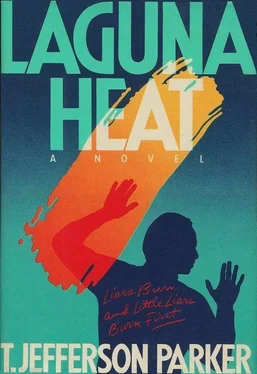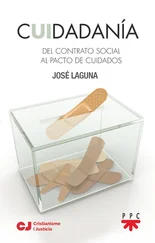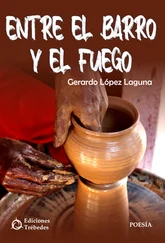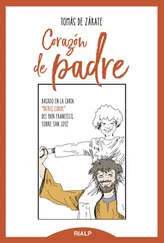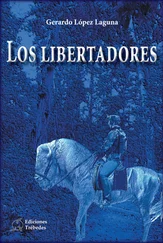“And I will tell you, I felt small. Small and ignorant and foolish. So, when I see someone I do not know, or hear a joke about someone I do not know, or hear rumors about someone I do not know, I think back to that day and see that old man’s face as he offered me the quarter and the sayings of Jesus. Judge not, judge not and you will not have to worry about being judged yourself.”
Shephard got a beer from the refrigerator, then flipped to the eleven o’clock news, where he saw himself standing in the harsh lights of the conference room, droning through his opening remarks. He looked nothing like the man on KNEW: his face was a sickly white and a glaze of sweat shone on his forehead. There was no life in his voice, it could have been the fabrication of a computer.
The anchorman’s voice sounded over his own: “In an interesting sidelight to this story, it was the same Detective Tom Shephard in charge who recently resigned from the Los Angeles Police Department after the fatal shooting of a black youth last year. That killing was the twelfth last year by LAPD officers...”
As he spoke, the conference footage gave way to a grainy, late night recording of the Mumford scene. Shephard watched as two officers carried the body toward a waiting van, its red lights pulsing. In the background was Morris’s home, and somehow the news crew had rounded up his father and mother, who stood on the sidewalk where their son had fallen, staring at the camera while a reporter pressed a microphone toward them. The woman wept uncontrollably while the man, his eyes wide with sadness, tried to explain that Morris was just a kid.
“Detective Shephard, thirty-two, had this to say when questioned about living with the stress of a fatal, officer-involved shooting,” the newsman continued, and the footage changed back to the Laguna police conference room, where Shephard stared stupidly into the camera and asked, “Fears and doubts? Sure, I’ve got the same—”
He flipped the channel back to his father’s sermon and uncapped the beer. Wade was talking about the inner life and how the person who is beautiful on the outside can harbor a “heart of sickness,” while the person with a diseased body can harbor “a heart of truth and beauty.”
Shephard gulped down the beer and applied Wade’s theory to Wade. Did he know his father? Maybe. Did he understand him? Maybe not. He thought back to the man whom he had grown up with, the cop who drank hard and came home at night to roam the house mournfully as if it were a city gutted by plague. Somehow, young as he was, Shephard had thought he understood. His father was simply looking for someone who was no longer there. Just as he was. Just as he had sometimes wondered what his mother’s hair felt like, or the sound of her voice.
And he had understood the man who would disappear for long weekends fishing in the mountains and never come home with fish. Shephard understood that it was the mountains that drew him, not the fish. He had known the man who attacked everything he did with a terrible intensity, the Wade who had painted a strike zone on the garage door for his son to pitch against, then bludgeoned the door full of holes with a baseball bat when the zone came out crooked. He had known the man who walked purposefully down the center of the pier once a month and fell off into the darkness without so much as a look beneath. Somehow, he had even understood this: Wade was simply trying to lose himself. Shephard had even emulated this strange midnight ritual. He thought of those nights when his father left “for a walk,” and he would start up his small motorcycle, crisscrossing his way out Laguna Canyon Road, forcing the oncoming traffic to careen out of his way, to screech in panic stops.
It made sense. Lose oneself. Was it finally to find oneself, as Dr. Zahara said?
And he understood the Wade Shephard who had taken him out to dinner the night before he left for the Police Academy in Los Angeles. Wade had drunk profusely and encouraged Tom to follow. They obliterated their own good sense by ten, and by midnight, sitting in the corner of a noisy Laguna Beach saloon, his father had taken on that glazed look of a drinker who simply cannot put himself under. The elusive wave of darkness wouldn’t find him. And at exactly 1 A.M. — Shephard had looked at his watch for some reason just before it happened — Wade’s face had drained of color, his eyes had widened as if someone had just put a match to his foot, and he had slumped forward, knocking the small table and its drinks onto the floor.
He understood: it had been coming all night.
But the face on the screen belonged to a different animal, Shephard thought. It was fuller, and his smile had blossomed into a happy, generous gleam. His eyes were wider, and clear. The expression on the Reverend Wade Shephard’s face said, “I’m here, take me, I will be of help to you.” Even his voice had changed.
Shephard searched that face for answers. Were the dark eyes of Wade the Cop simply searching for what Wade the Reverend had found? Was the monthly jump from the pier only a preparation for the leap of faith? Was the anger a pathway to patience?
Shephard thought back to the first and only time that Wade had told him about the death of Colleen. It was early evening and he was in his room, thinking of the next day, his first day of school. He was counting dust specks in a shaft of sunlight that slanted through the window. Wade came in and sat quietly on the bed, his face grave and dark. He held a newspaper clipping, which he stared at for a long moment before he spoke. Then he told Tom that his mother was dead, as he knew, and that she had been killed by a man with a gun. The man’s name was Azul Mercante and he had broken into their house when Colleen was alone. He had tried to take advantage of her in a way that men could do to women. But his father had come home and fought with Azul, who used the gun on Colleen before Wade could stop him. Azul had gone to prison, and would be there for many years. Fingering the news clipping with a trembling hand, Wade had showed it to his son. Too young to read, Shephard had merely looked at the pictures, one of his mother and one of his father. Wade explained that Colleen was safe and warm in heaven, where good people go. If other children in kindergarten talked of their mothers, then Tom would have to understand that he could not. This was nothing to be ashamed of. All he needed to know was that Colleen had loved him more than anything else in the world and she always would. Shephard had nodded and understood: after all, it was rather simple, wasn’t it? His father hugged him, and hid his face as he walked out of the room and shut the door behind him.
He had happened across the news article and photos a year later, but shut the drawer quickly when he saw what was in it. His father’s explanation was enough. She was safe and warm in heaven where good people go. Besides, he had thought of her from time to time, and built an image of her, a voice, a feeling. At times, he knew she was nearby, looking in through a window perhaps, or somewhere under the bed, making sure that he was all right. And as warm and substantial as Wade was, when Shephard cried with the pain or humiliation that only the young can feel so desperately, it was always Colleen’s breast that took his tears. She was there, he knew it. She just was not the kind of mother you could see.
And twenty-five years later, as he sat in the living room of his naked apartment, he felt her presence still. A sensation from something no longer there, from a phantom limb, from the ghost who had given him life.
He had nearly dozed off when the phone rang. It was Jane Algernon.
“I didn’t mean to be short,” she said quietly. “I didn’t mean it that way. You made me look at myself. You made me feel something again. Thank you, Tom Shephard. And I want you to know I’ll do what I can to help you. I owe it to whoever else might be next. Maybe I even owe it to you.”
Читать дальше
